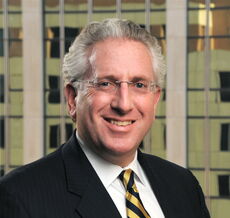
Processing Your Payment
Please do not leave this page until complete. This can take a few moments.
-
News
-
Editions
-
- Lists
-
Viewpoints
-
HBJ Events
-
Event Info
- 2024 Economic Outlook Webinar Presented by: NBT Bank
- Best Places to Work in Connecticut 2024
- Top 25 Women In Business Awards 2024
- Connecticut's Family Business Awards 2024
- What's Your Story? A Small Business Giveaway 2024 Presented By: Torrington Savings Bank
- 40 Under Forty Awards 2024
- C-Suite and Lifetime Achievement Awards 2024
- Connecticut's Health Care Heroes Awards 2024
-
-
Business Calendar
-
Custom Content
- News
-
Editions
View Digital Editions
Biweekly Issues
- April 15, 2024
- April 1, 2024
- March 18, 2024
- March 4, 2024
- February 19, 2024
- February 5, 2024
- January 22, 2024
- January 8, 2024
- Dec. 11, 2023
- + More
Special Editions
- Lists
- Viewpoints
-
HBJ Events
Event Info
- View all Events
- 2024 Economic Outlook Webinar Presented by: NBT Bank
- Best Places to Work in Connecticut 2024
- Top 25 Women In Business Awards 2024
- Connecticut's Family Business Awards 2024
- What's Your Story? A Small Business Giveaway 2024 Presented By: Torrington Savings Bank
- 40 Under Forty Awards 2024
- C-Suite and Lifetime Achievement Awards 2024
- Connecticut's Health Care Heroes Awards 2024
Award Honorees
- Business Calendar
- Custom Content
Workplace Sexism: State collaboration seeks to combat gender discrimination at work
 IMAGE | ADOBESTOCK.com
IMAGE | ADOBESTOCK.com
When it comes to sex discrimination in the workplace, society has come a long way in the 30-plus years Joshua Hawks-Ladds has practiced labor law, but he’s still surprised by the number and types of cases that come across his desk.
“You would think that after the ‘Me Too’ movement and all the lawsuits on pay equity and all stories in the news about public officials getting in trouble for bad deeds with their interns and others, companies would be sensitive to these issues, but too many are not,” said Hawks-Ladds, an attorney with law firm Pullman & Comley.
What types of cases does he see? Pregnancy-related, inappropriate remarks and language, bullying with a sexist component and sexual harassment. In spite of decades of attention to the problem, inappropriate sexual behavior and language in the workplace persist, Hawks-Ladds said.
“We still have the issue of harassment where people just don’t get it,” he said. “You see it all the time. Sometimes it’s a personal relationship gone bad, but sometimes it’s poor judgment. Often it’s a situation at an off-site event where alcohol is served. Too often too much imbibing leads to incidents.”

But even as Hawks-Ladds, who typically advises employers, is in no danger of starving, he notes that things have improved tremendously since the days when a woman could be fired for getting pregnant, as happened to his mother.
“No doubt things have improved,” he said, adding that big changes in both federal and state laws have brought greater equality and fairness to women in the workplace. “But it’s equally important that our social norms have changed.”
Sex discrimination of all types nonetheless remains a significant problem, as does the pay gap and the glass ceiling. A 2017 Pew Research Center study found that 42% of women had faced discrimination on the job and 25% reported making less than a male peer doing the same work.
U.S. Bureau of Labor Statistics data shows that as of 2020, full-time female workers’ pay was 82 cents for every dollar earned by their male colleagues.
A new paradigm
To help address these and other issues, especially the dearth of women in top positions and on corporate boards, the state is collaborating with a group called Paradigm for Parity, Lt. Gov. Susan Bysiewicz said.
Just 5% of Fortune 500 companies have female CEOs, and the numbers on their corporate boards were until recently just as anemic, Bysiewicz said. Paradigm for Parity seeks to address that disparity. Composed of Fortune 500 companies, the group’s members commit to helping women climb the corporate ladder, she said.
“When I learned that Paradigm for Parity was seeking to get more female CEOs and women in C-Suite offices, CEOs, CFOs, COOs, I thought it was important to see what I could do to get companies to join,” Bysiewicz said.
Starting in 2019, she approached Fortune 500 firms in Connecticut and urged them to sign up with the group. She met with immediate success, convincing a bevy of big name companies, including CVS-Aetna, Stanley Black & Decker and The Hartford, to join. Bysiewicz then moved on to stage two, approaching the healthcare industry and getting among others Yale New Haven Hospital, Jackson Labs and Pfizer on board, she said.
“Connecticut has the largest number of Fortune 500 companies that have joined,” Bysiewicz said. “Hundreds of thousands of workers are affected.”
Getting more women into top corporate positions isn’t just the right thing to do, Bysiewicz said. It’s also good business. Studies show that the more sexually and racially diverse a firm’s leadership, the more money it makes, she said.
In March, Paradigm for Parity and the state held an event focused on accelerating the rise of women in corporations. It was attended by Bysiewicz and representatives of member firms, including Trinity Health of New England, Raytheon Technologies and Otis Elevator.
“When women have equal access to education, employment, and leadership positions, they can fully contribute their talents and perspectives to society, creating a more inclusive work environment,” Paradigm for Parity CEO Sandra Quince said. “Although progress has been made, Paradigm for Parity is committed to partnering with companies across the country to address the persistent barriers and biases that still exist.”
The organization does more than talk. It provides mentorship, networking and other resources to women seeking to shatter the glass ceiling, Bysiewicz said.
“You can’t just say we have this goal but not have a way to get there,” she said. “They have a whole set of materials, a toolbox really, to help a company get to where they want to be.”
Fixing gaps
The state of Connecticut in recent years has passed legislation specifically aimed at reducing the pay gap, Hawks-Ladds said. Those laws prohibit employers from asking what a job candidate made in his or her previous position. Employers are required now to state a pay range for each position, he said.
“Changes in law regarding wage transparency is an attempt to break through the glass ceiling,” he said. “When someone applies for a position, she does not have to say what her salary was, but the employer does have to say the salary range. That’s an attempt to equalize the pay disparity.”
While many of the employers Hawks-Ladds represents are not thrilled about the added regulation, he believes they are genuinely committed to shrinking the pay gap and making their workplaces more welcoming to women.
“I think people don’t like to be over regulated, but they will accept that amount of regulation that is necessary to fix a problem,” he said. “I think the pay gap between men and women has been a problem and people realize that.”
Perhaps the most vexing problem faced by women in the workplace is balancing family with work during pregnancy and after giving birth.

Gary Phelan, a labor lawyer and partner at Stratford-based Mitchell & Sheahan who specializes in representing employees, said that pregnancy-related cases are one of the most common sex discrimination complaints he sees.
“It tends to happen at two points, soon after disclosing the pregnancy or shortly before the return from maternity leave,” said Phelan, who is also an adjunct labor law professor at Quinnipiac University School of Law. “If they’re still working, it’s some sort of criticism of performance.”
Bysiewicz said that pregnancy and childcare are among the biggest challenges companies face making their workplaces more equitable for women. Key to addressing the problem is affordable childcare for any woman who wants to work, she said.
Gov. Ned Lamont and Bysiewicz are exploring ways for the state to do that. Bysiewicz had particular praise for companies like German pharmaceutical firm Boehringer Ingelheim in Ridgefield that have onsite daycare centers for employees.
“We’ve got to figure out what we need to do to make sure any woman who wants to work has the ability to do it and has the tools she needs for success,” she said.
Unfortunately, it’s inevitable that some women will continue to face discrimination in the workplace. Phelan’s advice if that occurs:
“Tell other people about it,” he said. “That’s number one. Number two: take notes. Write down what happened just so there’s some sort of evidence to support it. Third, you may want to consider consulting an attorney.”

2022 Giving Guide
This special edition informs and connects businesses with nonprofit organizations that are aligned with what they care about. Each nonprofit profile provides a crisp snapshot of the organization’s mission, goals, area of service, giving and volunteer opportunities and board leadership.
Learn more
Subscribe
Hartford Business Journal provides the top coverage of news, trends, data, politics and personalities of the area’s business community. Get the news and information you need from the award-winning writers at HBJ. Don’t miss out - subscribe today.
Subscribe
2024 Book of Lists
Delivering Vital Marketplace Content and Context to Senior Decision Makers Throughout Greater Hartford and the State ... All Year Long!
Read Here-
2022 Giving Guide
This special edition informs and connects businesses with nonprofit organizations that are aligned with what they care about. Each nonprofit profile provides a crisp snapshot of the organization’s mission, goals, area of service, giving and volunteer opportunities and board leadership.
-
Subscribe
Hartford Business Journal provides the top coverage of news, trends, data, politics and personalities of the area’s business community. Get the news and information you need from the award-winning writers at HBJ. Don’t miss out - subscribe today.
-
2024 Book of Lists
Delivering Vital Marketplace Content and Context to Senior Decision Makers Throughout Greater Hartford and the State ... All Year Long!
ABOUT
ADVERTISE
NEW ENGLAND BUSINESS MEDIA SITES
No articles left
Get access now
In order to use this feature, we need some information from you. You can also login or register for a free account.
By clicking submit you are agreeing to our cookie usage and Privacy Policy
Already have an account? Login
Already have an account? Login
Want to create an account? Register
Get access now
In order to use this feature, we need some information from you. You can also login or register for a free account.
By clicking submit you are agreeing to our cookie usage and Privacy Policy
Already have an account? Login
Already have an account? Login
Want to create an account? Register






0 Comments